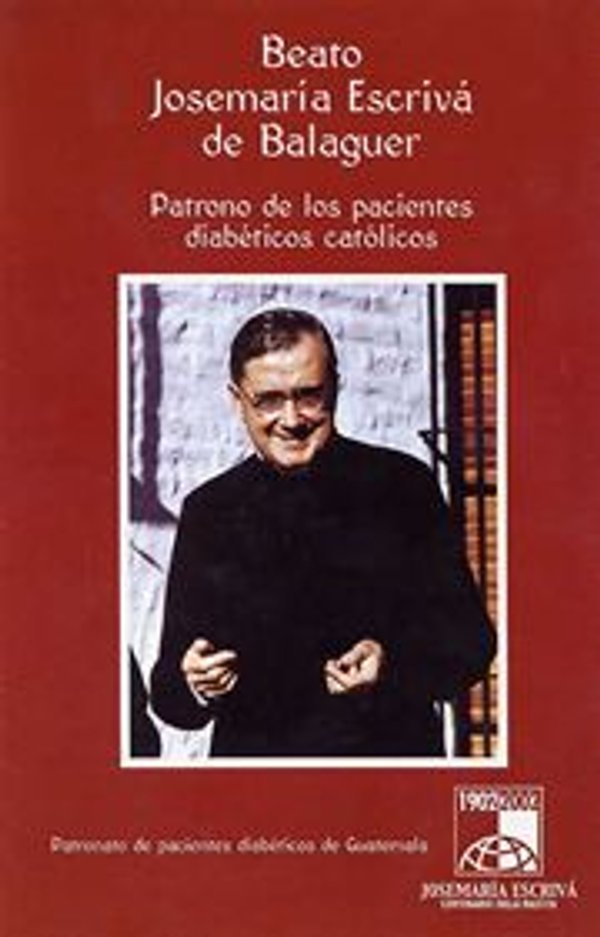The booklet sketches a brief biography of Blessed Josemaría, paying special attention to the ten years he suffered diabetes before he was cured in 1954. His physician, Dr. Carlo Faelli, noted that it was one of the most serious cases of diabetes that he had ever seen. It was a case of diabetes mellitus, which affected his body in a variety of ways: sometimes he found himself unable to stand; at other times he easily caught infections; and he lost vision in one of his eyes.
The Association of Diabetics of Guatemala eulogizes Blessed Josemaría for his supernatural outlook, his total abandonment in the hands of God and the cheerful optimism with which he bore the effects of his illness. “He worked and moved about as if he were healthy, with none of the tiredness produced by fear that often affects sick people. ‘Lord,’ said the founder of Opus Dei, ‘I don’t know if I’ll rise tomorrow; I thank you for the life you’re given me and I’m happy to die in your arms. I hope in your mercy.’”
Blessed Josemaría was cured of his diabetes on April 27, 1954, in an inexplicable way. He had just been given an injection, and was in the dining room with Msgr. Alvaro del Portillo, who years later would succeed him as the head of Opus Dei. All of sudden Escrivá lost consciousness and his skin immediately changed color. “He turned a vivid red, then a kind of purple, and finally an earthlike color. And most of all, he appeared very small, fallen over on his side…. It was very strange,” recalls Msgr. del Portillo, who gave him absolution and called a doctor immediately.
The doctor later informed him that an anaphylactic shock of more than ten minutes is usually fatal. The shock that Blessed Josemaría suffered lasted fifteen minutes, and he not only survived it, but from that moment on he was totally cured. “When I was about to lose consciousness – it was a matter of seconds –” the founder later recounted, “the Lord made me see my life as if it were a movie: I was filled with shame for so many errors, and I asked the Lord pardon. It is impossible for one to go through a more powerful experience. It’s as if I had died.”
The new booklet is written chiefly for the 15,000 members of the association, most of whom live in the capital, in Quetzaltenango and in Coatepeque, though it is designed to spread devotion to Blessed Josemaría among all diabetics and their families. In a meeting on Sept. 13, 1999, the governing body of the Association of Diabetics of Guatemala named Blessed Josemaría “Patron of Catholic diabetic patients.” The association, some of whose members are non-Catholic, was founded 25 years ago.
The objectives of the association include the early detection of diabetes and its proper medical treatment, the treatment of complications arising from the disease, educating the public about diabetes, and providing financial help to diabetics who are in economic need.
